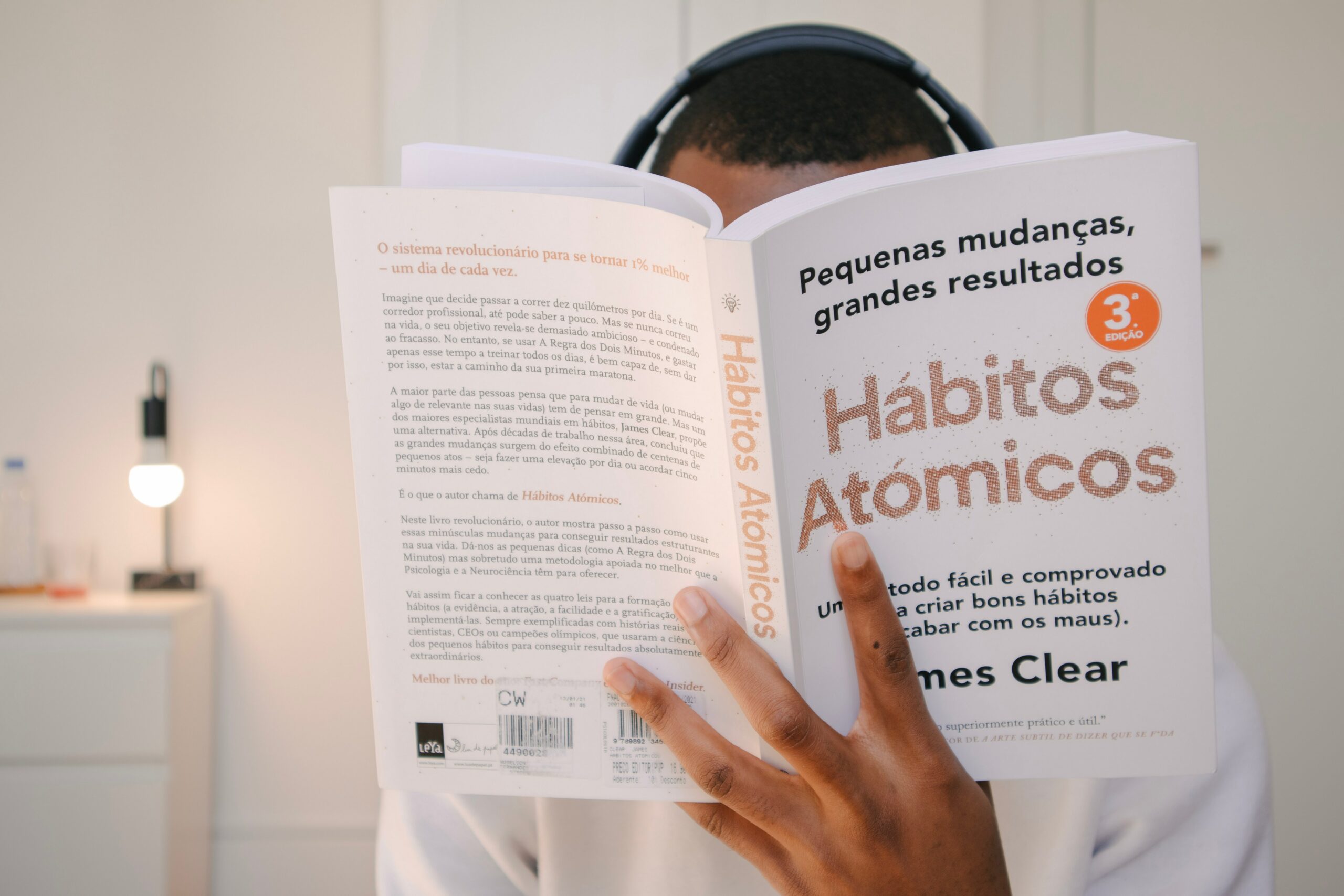Vídeo | 8 Uncomfortable Truths About Language Learning No One Talks About
Ao contrário do que muitos acreditam, aprender uma nova língua não é sempre divertido nem fácil, e isso explica por que tantos desistem no meio do caminho. Veronika aborda as realidades desafiadoras que cada aprendiz enfrenta, desde a monotonia inevitável até a natureza fluida da fluência e a importância da resiliência emocional. Ela desmistifica a ideia de que somente a imersão ou aplicativos de idiomas podem garantir sucesso, enfatizando a necessidade de engajamento ativo e prática real. Prepare-se para uma visão honesta que pode mudar sua perspectiva sobre o que significa realmente aprender um idioma!
| Audio | |
|---|---|
Normal | Slow |
| English Transcript | Tradução |
| This video is brought to you by Squarespace. | Este vídeo é oferecido por Squarespace. |
| Everyone says learning a language is supposed to be fun and easy: just immerse yourself, use the right app, and you'll be fluent in no time, right? | Todo mundo diz que aprender um idioma deve ser divertido e fácil: basta se imergir, usar o aplicativo certo e você será fluente em pouco tempo, certo? |
| Well, here's the truth no one tells you: it's not that simple, and that's exactly why most people quit. | Bem, aqui está a verdade que ninguém te conta: não é tão simples, e é exatamente por isso que a maioria das pessoas desiste. |
| In this video, I'm going to break down the harsh realities of language learning that no one talks about but every single language learner has to face. | Neste vídeo, vou expor as duras realidades do aprendizado de idiomas que ninguém fala, mas que todo aprendiz de idiomas tem que enfrentar. |
| The first uncomfortable truth is language learning isn't always fun, and that's okay. | A primeira verdade desconfortável é que aprender idiomas nem sempre é divertido, e está tudo bem. |
| If this is the first video you're watching about language learning, maybe it's going to make you feel a little bit sad, but that's the reality. | Se este é o primeiro vídeo que você está assistindo sobre aprendizado de idiomas, talvez isso o faça se sentir um pouco triste, mas essa é a realidade. |
| I feel like some people who are learning foreign languages tend to romanticize the process, like learning a foreign language is always exciting, it's always fun. | Sinto que algumas pessoas que estão aprendendo línguas estrangeiras tendem a romantizar o processo, como se aprender uma língua estrangeira fosse sempre emocionante, sempre divertido. |
| But the reality is it can feel monotonous, just like every single skill that you're acquiring. | Mas a realidade é que pode ser monótono, assim como qualquer habilidade que você está adquirindo. |
| Sometimes it's fun, sometimes it's boring. | Às vezes é divertido, às vezes é entediante. |
| And when it becomes dull and monotonous, it doesn't mean that you have to quit, it doesn't mean that language learning isn't for you. | E quando se torna monótono e enfadonho, não significa que você tem que desistir, não significa que aprender idiomas não é para você. |
| That's the reality: sometimes it happens, and that's okay. | Essa é a realidade: às vezes isso acontece, e está tudo bem. |
| It happens to me right now; it happened to me in the past with English, Spanish, Chinese, and all the other foreign languages I was learning. | Acontece comigo agora; aconteceu comigo no passado com inglês, espanhol, chinês e todos os outros idiomas estrangeiros que eu estava aprendendo. |
| I think the key here is to accept that not every single aspect of language learning is going to be fun. | Acho que a chave aqui é aceitar que nem todo aspecto do aprendizado de idiomas vai ser divertido. |
| For example, to me, I would say learning grammar right now is not that fun. | Por exemplo, para mim, eu diria que aprender gramática agora não é tão divertido. |
| It just isn't. | Simplesmente não é. |
| It's monotonous, it's boring, it's dull, and that's okay. | É monótono, é chato, é maçante, e está tudo bem. |
| The real progress happens when you push through these boring parts, when you find a way to make these boring things less boring. | O verdadeiro progresso acontece quando você supera essas partes entediantes, quando encontra uma maneira de tornar essas coisas chatas menos chatas. |
| I would say less monotonous. | Eu diria menos monótono. |
| I know that deep down I don't enjoy grammar that much, but I know that if I'm watching a YouTube video about a specific grammar rule, I'm going to enjoy it a lot more. | Eu sei que no fundo eu não gosto tanto de gramática, mas sei que se estou assistindo a um vídeo no YouTube sobre uma regra gramatical específica, vou gostar muito mais. |
| Instead of being this boring, it becomes this boring, which is already a lot better. | Em vez de ser tão chato, fica um pouco chato, o que já é muito melhor. |
| The next uncomfortable truth about language learning that I want to talk about in this video is that fluency is a moving target. | A próxima verdade desconfortável sobre o aprendizado de idiomas que quero abordar neste vídeo é que a fluência é um alvo em movimento. |
| Many people think that once they reach fluency, they're done. | Muitas pessoas acham que, uma vez que atingem a fluência, estão prontas. |
| "I'm fluent, woohoo, success!" | "Estou fluente, uhuu, sucesso!" |
| But fluency is fluid, and your language skills change all the time depending on your environment, depending on how much you practice, depending on your confidence levels. | Mas a fluência é fluida, e suas habilidades linguísticas mudam o tempo todo dependendo do seu ambiente, de quanto você pratica, de seus níveis de confiança. |
| One day I'm in a good mood, I feel super confident, and my English is amazing. | Um dia estou de bom humor, me sinto super confiante e meu inglês está incrível. |
| The next day, all the words I have in my brain are just in Russian. | No dia seguinte, todas as palavras que tenho na minha cabeça estão apenas em russo. |
| It happens. | Isso acontece. |
| And also, different levels of fluency are required for different situations. | E também, diferentes níveis de fluência são necessários para diferentes situações. |
| When we were talking about fluency at work, if you are a doctor, a surgeon, let's say, obviously your English skills will have to be a lot higher for you to be truly confident and professional when it comes to your job, like speaking English at your job. | Quando falamos de fluência no trabalho, se você é médico, um cirurgião, por exemplo, obviamente suas habilidades em inglês terão que ser muito mais altas para você ser realmente confiante e profissional no que diz respeito ao seu trabalho, como falar inglês em seu trabalho. |
| But if your goal for learning English is to talk to your friends in English, you will reach fluency a lot faster this way. | Mas se o seu objetivo ao aprender inglês é conversar com seus amigos em inglês, você alcançará a fluência muito mais rapidamente dessa forma. |
| When I was in high school and college, I wanted to become fluent in English so bad. | Quando eu estava no ensino médio e na faculdade, queria muito me tornar fluente em inglês. |
| Like when I first heard this word, I was like, "Yes, this is my goal. I want to be fluent in English." | Quando ouvi essa palavra pela primeira vez, pensei: "Sim, esse é o meu objetivo. Quero ser fluente em inglês." |
| But like, what is fluency, you know? | Mas tipo, o que é fluência, sabe? |
| For different people, for different goals, for different situations, fluency is going to be a different thing. | Para pessoas diferentes, para objetivos diferentes, para situações diferentes, a fluência será uma coisa diferente. |
| And so now, when I'm a more experienced language learner, if I can call myself that, I don't want to be fluent in Spanish. | E agora, quando sou uma aprendiz de idiomas mais experiente, se posso me chamar assim, eu não quero ser fluente em espanhol. |
| I have my goals in Spanish, and I want to reach my specific goals in Spanish. | Eu tenho meus objetivos em espanhol e quero alcançar meus objetivos específicos em espanhol. |
| When I do these specific small actions every single day, I know that I'm getting closer and closer to my goals. | Quando faço essas pequenas ações específicas todos os dias, sei que estou me aproximando cada vez mais dos meus objetivos. |
| Some people are going to say, "Oh my God, you're already fluent in Spanish." | Algumas pessoas vão dizer: "Oh meu Deus, você já é fluente em espanhol." |
| Other people are going to say, "Uh, you still need to work on your grammar." | Outras pessoas vão dizer: "Ah, você ainda precisa trabalhar na sua gramática." |
| But I know what my goals are, and I know when I reach a certain goal that I set for myself in this language. | Mas eu sei quais são os meus objetivos, e eu sei quando atinjo um certo objetivo que estabeleci para mim neste idioma. |
| Uncomfortable truth number three is that a lot of people give up language learning because of a lack of emotional resilience, not intelligence. | A verdade desconfortável número três é que muitas pessoas desistem de aprender idiomas por falta de resiliência emocional, não inteligência. |
| A lot of language learners quit because they say that they're not smart enough or that language learning is just not for them or that they're just not naturally gifted at language learning. | Muitos estudantes de idiomas desistem porque dizem que não são inteligentes o suficiente, ou que aprender idiomas simplesmente não é para eles, ou que simplesmente não têm talento natural para aprender idiomas. |
| But I honestly think that the main reason why people quit language learning is because they can't handle the emotional roller coaster of language learning. | Mas eu honestamente acho que o principal motivo pelo qual as pessoas desistem de aprender idiomas é porque não conseguem lidar com a montanha-russa emocional do aprendizado de idiomas. |
| Yes, sometimes you're going to feel frustrated, and that's okay. | Sim, às vezes você vai se sentir frustrado, e está tudo bem. |
| That's a part of the journey, and a lot of people can't fully come to terms with it, and that's why they quit. | Isso faz parte da jornada, e muitas pessoas não conseguem aceitar isso completamente, e é por isso que desistem. |
| And so training the skill of emotional resilience when it comes to language learning is going to be key. | E assim, treinar a habilidade de resiliência emocional quando se trata de aprendizado de idiomas será fundamental. |
| Being in those situations where you forget a word or you make a mistake or you say something stupid is going to build your emotional resilience. | Estar nessas situações em que você esquece uma palavra ou comete um erro ou diz algo estúpido vai construir sua resiliência emocional. |
| Instead of giving up, quitting immediately, and saying that it's too hard, it's not for me, you know, I'm not naturally gifted at language learning, try again and you will succeed. | Em vez de desistir, abandonar imediatamente, e dizer que é muito difícil, não é para mim, você sabe, eu não tenho talento natural para aprender idiomas, tente novamente e você terá sucesso. |
| And speaking of building resilience, whether you're learning a new language or launching a passion project, having the right tools to stay consistent is key. | E falando em construir resiliência, seja aprendendo um novo idioma ou lançando um projeto de paixão, ter as ferramentas certas para se manter consistente é fundamental. |
| That's where today's sponsor, Squarespace, comes in. | É aí que entra o patrocinador de hoje, Squarespace. |
| Squarespace is an all-in-one platform to build your online presence. | Squarespace é uma plataforma tudo-em-um para construir sua presença online. |
| Whether you're starting a blog, showcasing your portfolio, or even selling products, one thing that I love about Squarespace is how incredibly easy it is to use. | Seja começando um blog, apresentando seu portfólio ou até vendendo produtos, uma coisa que amo no Squarespace é o quão incrivelmente fácil é de usar. |
| Even if you're not tech-savvy, you don't have to be a coding expert to have a professional website up and running in no time. | Mesmo que você não seja especialista em tecnologia, não precisa ser um expert em programação para ter um site profissional em funcionamento rapidamente. |
| Let me show you how I've been using it to create my own website. | Deixe-me mostrar como estou usando para criar meu próprio site. |
| Squarespace's design intelligence feature takes their two decades of design experience and integrates it with cutting-edge AI to help you create a unique, visually stunning website without any hassle. | A função de inteligência de design do Squarespace aproveita seus dois anos de experiência em design e a integra com tecnologia de ponta em AI para ajudar você a criar um site único, visualmente impressionante, sem complicações. |
| It adapts to your preferences, ensuring that your website looks personalized and professional. | Ela se adapta às suas preferências, garantindo que seu site pareça personalizado e profissional. |
| And if you're looking to grow your audience, Squarespace offers tools for running email campaigns to keep your subscribers engaged and drive more traffic to your content. | E se você está procurando aumentar seu público, o Squarespace oferece ferramentas para executar campanhas de email para manter seus assinantes engajados e direcionar mais tráfego para o seu conteúdo. |
| So if you're ready to take your passion project to the next level, head to squarespace.com/Veronica to start your free trial, and when you're ready to launch, use my code Veronica for 10% off your purchase of a website or domain. | Então, se você está pronto para levar seu projeto de paixão para o próximo nível, vá para squarespace.com/Veronica para iniciar seu teste gratuito, e quando estiver pronto para lançar, use meu código Veronica para 10% de desconto na compra de um site ou domínio. |
| Trust me, it's one of the best investments you'll make to showcase your skills and launch your dream project. | Confie em mim, é um dos melhores investimentos que você fará para mostrar suas habilidades e lançar seu projeto dos sonhos. |
| Let's move on to uncomfortable truth number four: you will never speak perfectly, and that's perfectly okay. | Vamos seguir para a verdade desconfortável número quatro: você nunca falará perfeitamente, e isso está perfeitamente bem. |
| It happens to all of us language learners, to me too. | Isso acontece com todos nós, aprendizes de idiomas, comigo também. |
| Even when I record these YouTube videos, I want to speak perfectly. | Mesmo quando gravo esses vídeos no YouTube, quero falar perfeitamente. |
| I don't want to make any mistakes, and honestly, this pressure to be perfect can be paralyzing. | Não quero cometer nenhum erro, e honestamente, essa pressão para ser perfeito pode ser paralisante. |
| Because you're so afraid to make a mistake or mispronounce something, you're going to be less likely to want to actually speak the language, to want to actually share your perspective with others. | Porque você está tão com medo de cometer um erro ou pronunciar algo errado, você vai estar menos propenso a querer realmente falar o idioma, a querer realmente compartilhar sua perspectiva com os outros. |
| And yes, while this idea that even native speakers make mistakes can help you, and if it helps you, that's amazing, I also think that when native speakers say something and they know they made a mistake, they don't really care. | E sim, enquanto essa ideia de que até falantes nativos cometem erros pode te ajudar, e se isso te ajuda, isso é ótimo, eu também acho que quando os falantes nativos dizem algo e sabem que cometeram um erro, eles realmente não se importam. |
| Their confidence level is so high just because it's their native language, and generally, language learners really struggle with their confidence levels. | O nível de confiança deles é tão alto apenas porque é a língua nativa deles, e geralmente, os aprendizes de idiomas realmente lutam com seus níveis de confiança. |
| Usually, we think that, you know, when we make a mistake, because our confidence level is already here versus a native speaker who is going to be up here. | Normalmente, pensamos que, sabe, quando cometemos um erro, porque nosso nível de confiança já está aqui, em comparação com um falante nativo que estará lá em cima. |
| When a native speaker makes a mistake, they're like, "Whatever, nothing will change. I'm still a native speaker. I still know that I know the language, I can speak the language well." | Quando um falante nativo comete um erro, eles ficam tipo: "Tanto faz, nada vai mudar. Ainda sou um falante nativo. Ainda sei que conheço o idioma, posso falar o idioma bem." |
| But when we non-native speakers of English make a mistake, our confidence was here and when we say something incorrectly, it goes here, here, here, here. | Mas quando nós, que não somos falantes nativos de inglês, cometemos um erro, nossa confiança estava aqui, e quando dizemos algo incorretamente, desce aqui, aqui, aqui, aqui. |
| So it's really important to work on your confidence levels when you are a language learner. | Então é realmente importante trabalhar nos seus níveis de confiança quando você é um aprendiz de idioma. |
| And honestly, those people who have higher confidence levels learn foreign languages faster just because they don't care that much. | E honestamente, aquelas pessoas que têm níveis de confiança mais altos aprendem línguas estrangeiras mais rapidamente, apenas porque elas não se importam tanto. |
| Not because they have a mysterious, unique language learning ability, no. | Não porque têm uma habilidade misteriosa ou única de aprendizado de idiomas, não. |
| It's because when they make a mistake, when they mess up, when they say something incorrectly, they just don't care. | É porque quando cometem um erro, quando erram, quando dizem algo incorretamente, simplesmente não se importam. |
| They learn from that mistake and they move on. | Elas aprendem com aquele erro e seguem em frente. |
| Their confidence, it was here, it stays here, maybe it decreases a little bit, but then, you know, they learn from their mistake, and it's back to normal. | Sua confiança estava aqui, permanece aqui, talvez diminua um pouco, mas então, você sabe, elas aprendem com seu erro, e voltam ao normal. |
| The next uncomfortable truth is that your native language can really hinder your progress if you're not managing it correctly. | A próxima verdade desconfortável é que seu idioma nativo pode realmente prejudicar seu progresso se você não o gerenciar corretamente. |
| There is a term in linguistics called cross-language interference. | Existe um termo em linguística chamado interferência entre línguas. |
| It's basically where your native language's grammar and structure influence the way you talk and write in a foreign language. | É basicamente quando a gramática e a estrutura do seu idioma nativo influenciam a maneira como você fala e escreve em um idioma estrangeiro. |
| For many of us, this cross-language interference is a serious challenge. | Para muitos de nós, essa interferência entre línguas é um desafio sério. |
| But instead of fighting it, instead of feeling sad when you have it, because we all do, all language learners are going to experience that at some point, we should just be aware of it and know how to navigate around it. | Mas em vez de lutar contra isso, em vez de se sentir triste quando você tem isso, porque todos nós temos, todos os estudantes de idiomas vão experimentar isso em algum momento, devemos apenas estar conscientes disso e saber como navegar por isso. |
| So for you to better understand what this linguistic term is and how it shows in practice, I'm going to give you a few examples if your native language is Russian or if your native language is Spanish because I'm quite familiar with both of these languages. | Então, para você entender melhor o que é esse termo linguístico e como ele se manifesta na prática, vou te dar alguns exemplos se o seu idioma nativo é russo ou se o seu idioma nativo é espanhol, porque estou bastante familiarizada com ambas as línguas. |
| So the Russian language doesn't have articles, and for Russians who are learning English, it becomes very hard to grasp the idea of when they have to use 'a', 'an', or 'the'. | Então, o idioma russo não tem artigos, e para os russos que estão aprendendo inglês, torna-se muito difícil entender a ideia de quando devem usar 'a', 'an' ou 'the'. |
| Honestly, me being a native Russian speaker, I struggle so much with just the pronunciation of all of these articles, let alone how to use them grammatically. | Honestamente, sendo eu uma falante nativa de russo, eu luto muito com a pronúncia de todos esses artigos, quanto mais em como usá-los gramaticalmente. |
| In Russia, it's totally okay to say "I have car," but in English, you absolutely have to say "I have a car." | Na Rússia, é totalmente aceitável dizer "Eu tenho carro", mas em inglês, você absolutamente tem que dizer "Eu tenho um carro". |
| You can't just say "I have car," it's going to be a grammar mistake. | Você não pode simplesmente dizer "Eu tenho carro", isso será um erro de gramática. |
| These little mistakes can help you understand what the native language of the person you're talking to is, because when I talk to a person and they always omit articles, I can understand why they are doing that because my native language is Russian, and for the longest time, I struggled with 'a', 'an', and 'the' as well. | Esses pequenos erros podem ajudá-lo a entender qual é o idioma nativo da pessoa com quem você está falando, porque quando falo com uma pessoa e ela sempre omite artigos, posso entender por que estão fazendo isso, porque meu idioma nativo é russo, e por muito tempo, lutei com 'a', 'an' e 'the' também. |
| I live in Mexico, and I speak Spanish, and because of that, I can already notice the cross-language interference that happens to Spanish speakers. | Moro no México e falo espanhol, e por causa disso, já consigo perceber a interferência entre línguas que acontece com os falantes de espanhol. |
| In Spanish, people often use double negatives for emphasis, for example, "No veo nada" (I don't see anything), even though the direct translation to English is going to be "I don't see nothing." | Em espanhol, as pessoas muitas vezes usam negativos duplos para ênfase, por exemplo, "No veo nada" (Eu não vejo nada), mesmo que a tradução direta para o inglês seja "Eu não vejo nada". |
| And so, exactly because of that, a lot of people who speak Spanish as their native language, once they start speaking English, they continue using double negatives. | E então, exatamente por causa disso, muitas pessoas que falam espanhol como idioma nativo, quando começam a falar inglês, continuam usando negativos duplos. |
| They continue saying "I don't see nothing," "I don't know nothing," even though in English, grammatically, in most situations, it's going to be incorrect. | Continuam dizendo "I don't see nothing", "I don't know nothing", mesmo que em inglês, gramaticalmente, na maioria das situações, esteja incorreto. |
| And so again, understanding that this cross-language interference happens to every single English learner, every single language learner out there, is going to help you navigate around all of these challenges and all of these problems. | E assim, novamente, entender que essa interferência entre línguas acontece com todos os estudantes de inglês, todos os estudantes de idiomas, vai te ajudar a navegar por todos esses desafios e todos esses problemas. |
| Is it a feeling like you will never understand English grammar? | É um sentimento de que você nunca vai entender a gramática do inglês? |
| Yes, the pattern is different, but you can understand this new pattern. | Sim, o padrão é diferente, mas você pode entender esse novo padrão. |
| Now let's move on to uncomfortable truth number six: the myth of immersion. | Agora, vamos seguir para a verdade desconfortável número seis: o mito da imersão. |
| It's often not enough. | Muitas vezes não é suficiente. |
| Immersion is often seen as this ultimate hack for language learning. | A imersão é frequentemente vista como esse truque definitivo para aprender idiomas. |
| Everyone talks about immersion online, and I support it 100% because it's an amazing principle when it comes to language learning. | Todo mundo fala sobre imersão online, e eu apoio 100% porque é um princípio incrível quando se trata de aprender idiomas. |
| However, being surrounded by the language doesn't necessarily mean that you will learn it because you have to be active. | No entanto, estar cercado pelo idioma não significa necessariamente que você o aprenderá, porque você precisa ser ativo. |
| You have to be actively engaged with the language to be able to successfully learn it. | Você tem que estar ativamente engajado com o idioma para poder aprendê-lo com sucesso. |
| There are so many people who move abroad, let's say, to an English-speaking country like the USA, and then what happens is because they are immersed in the language in terms of yes, they live in the United States of America, but they're not actively engaged with the language, their progress is very slow even though yes, technically they live in an English-speaking country. | Existem tantas pessoas que se mudam para o exterior, digamos, para um país de língua inglesa como os EUA, e então o que acontece é que, porque estão imersas no idioma em termos de sim, vivem nos Estados Unidos da América, mas não estão ativamente engajadas com o idioma, seu progresso é muito lento, mesmo que sim, tecnicamente, vivam em um país de língua inglesa. |
| And that's why I often say that just moving to an English-speaking country is not enough. | E é por isso que muitas vezes digo que apenas se mudar para um país de língua inglesa não é suficiente. |
| I mean, I can learn a language to a very good level without actually being in that country. | Quero dizer, posso aprender um idioma em um nível muito bom sem realmente estar nesse país. |
| It's 100% possible. | É 100% possível. |
| And if you move to the country where your target language is spoken, it's not a guarantee that you're going to become fluent in this language, unfortunately, or maybe fortunately. | E se você se muda para o país onde seu idioma-alvo é falado, não é garantia de que você vai se tornar fluente nesse idioma, infelizmente, ou talvez felizmente. |
| Intentional and focused learning are important even in those immersive environments. | Aprendizado intencional e focado é importante, mesmo em ambientes imersivos. |
| Again, I'm highlighting here because I've noticed that a lot of people think that immersion just means listening to music in your target language somewhere in the background while you're driving, singing along, and that's it. | Novamente, estou destacando aqui porque percebi que muitas pessoas acham que imersão significa apenas ouvir música no seu idioma-alvo em algum lugar ao fundo enquanto dirige, cantando junto, e é isso. |
| I mean, it can be a part of the process, but if you never look up the words, if you never actively engage with the language, I don't think your language skills are going to improve fast. | Quero dizer, pode ser parte do processo, mas se você nunca procura as palavras, se nunca se engaja ativamente com o idioma, não acho que suas habilidades linguísticas vão melhorar rapidamente. |
| You know, sometimes when you listen to music, you understand the lyrics and you can sing along, but you don't actually know what that means, and it happens to a lot of us. | Você sabe, às vezes quando você ouve música, entende as letras e pode cantar junto, mas você realmente não sabe o que isso significa, e isso acontece com muitos de nós. |
| And so if that happens to you, and if you consider that immersion, it's not going to be good quality, engaged, active immersion. | E se isso acontece com você, e se você considera isso imersão, não será uma imersão ativa de boa qualidade e engajada. |
| Okay, now let's talk about language learning apps. | Ok, agora vamos falar sobre aplicativos de aprendizado de idiomas. |
| I personally think that language learning apps are a tool, not a solution. | Eu pessoalmente acho que os aplicativos de aprendizado de idiomas são uma ferramenta, não uma solução. |
| I know we're all looking for a magic pill, an app that is going to make us miraculously fluent. | Eu sei que todos estamos procurando por uma pílula mágica, um aplicativo que vai nos tornar miraculosamente fluentes. |
| I know that you guys want that, and I know that I want that too. | Eu sei que vocês querem isso, e eu sei que eu também quero isso. |
| But unfortunately, it's just not realistic. | Mas infelizmente, não é realista. |
| There are so many amazing language learning apps out there, and they should be just a part of your toolkit. | Existem tantos aplicativos incríveis de aprendizado de idiomas por aí, e eles devem ser apenas parte do seu kit de ferramentas. |
| You know, sometimes you get bored, and so you use this app, sometimes you start using a different resource, it all depends on how you feel. | Você sabe, às vezes você fica entediado, e então você usa este aplicativo, às vezes você começa a usar um recurso diferente, tudo depende de como você se sente. |
| You know, if you feel a little bit bored, like your language learning has become monotonous or dull, you can give this one app a try or maybe this other resource a try. | Você sabe, se você se sente um pouco entediado, como se seu aprendizado de idiomas tivesse se tornado monótono ou maçante, você pode experimentar este aplicativo ou talvez esse outro recurso. |
| But I really don't want you to think that that one app is going to become the solution for you, is going to make you fluent just by using this one single app. | Mas eu realmente não quero que você pense que um aplicativo vai se tornar a solução para você, vai te fazer fluente apenas usando este único aplicativo. |
| Real-life practice with a teacher or a friend is important, especially if you're working on developing your speaking abilities. | Prática na vida real com um professor ou um amigo é importante, especialmente se você está trabalhando no desenvolvimento de suas habilidades de fala. |
| Okay, and the final uncomfortable truth about language learning is that you can learn a language without becoming fluent. | Ok, e a última verdade desconfortável sobre aprendizado de idiomas é que você pode aprender um idioma sem se tornar fluente. |
| I think there is an overemphasis on fluency as the ultimate goal, and I'm not going to lie, in the past when I was learning English, that was my ultimate goal. | Acho que há uma ênfase exagerada na fluência como o objetivo final, e não vou mentir, no passado, quando estava aprendendo inglês, esse era meu objetivo final. |
| I wanted to become fluent even if I didn't really understand what that meant. | Eu queria me tornar fluente, mesmo sem realmente entender o que isso significava. |
| But now, when I started learning Spanish, I only say realize that you don't need to be fluent to have meaningful conversations and to use the language in real life. | Mas agora, quando comecei a aprender espanhol, percebi que você não precisa ser fluente para ter conversas significativas e usar o idioma na vida real. |
| In certain moments and situations, I feel extremely confident in my Spanish skills. | Em certos momentos e situações, me sinto extremamente confiante nas minhas habilidades em espanhol. |
| I feel fluent, yeah, we can say it this way, but in other situations, I lack vocabulary and I lack grammar, and I just feel like I'm a beginner again. | Me sinto fluente, sim, podemos dizer isso, mas em outras situações, falta vocabulário e falta gramática, e me sinto como uma iniciante novamente. |
| So I just don't want you guys to get discouraged if in certain moments you don't feel fluent in your foreign language, when you feel like you're forgetting everything, when you feel like in this one situation your vocabulary was amazing, your grammar was amazing, but in a different situation on a different day you stumbled, you made a lot of mistakes, and now you are questioning your fluency. | Então, eu simplesmente não quero que vocês desanimem se em certos momentos vocês não se sentirem fluentes no seu idioma estrangeiro, quando sentirem que estão esquecendo tudo, quando sentirem que em uma situação seu vocabulário estava incrível, sua gramática estava incrível, mas em uma situação diferente, em um dia diferente, você tropeçou, cometeu muitos erros, e agora está questionando sua fluência. |
| You can still learn the language and enjoy the process without being fluent. | Você ainda pode aprender o idioma e aproveitar o processo sem ser fluente. |
| I honestly don't really want you to set this goal of fluency because it's so subjective. | E honestamente, eu realmente não quero que você defina essa meta de fluência porque é tão subjetiva. |
| For one person, fluency is taking a language test and scoring C1, C2 on it. | Para uma pessoa, fluência é fazer um teste de idioma e alcançar C1, C2 nele. |
| For another person, fluency is having meaningful conversations with people who matter. | Para outra pessoa, fluência é ter conversas significativas com pessoas que importam. |
| And for me, it could be having a conversation with a bank representative on the phone because it is just so hard to understand people on the phone without seeing them. | E para mim, pode ser ter uma conversa com um representante do banco por telefone, porque é muito difícil entender as pessoas ao telefone sem vê-las. |
| And so when I had my conversation with a bank worker on the phone, I was like, "I can't understand anything," like all the Spanish that I've learned disappeared. | E então, quando tive minha conversa com um funcionário do banco por telefone, fiquei tipo: "Não consigo entender nada", como se todo o espanhol que aprendi desaparecesse. |
| So that is my new goal right now. | Então, esse é meu novo objetivo agora. |
| So I think it's going to be it for this video. | Então, acho que é isso para este vídeo. |
| If you liked it, please don't forget to give it a thumbs up and subscribe to my YouTube channel. | Se você gostou, por favor, não se esqueça de dar um like e se inscrever no meu canal do YouTube. |
| If you want to create your own website, I highly recommend Squarespace. | Se você quiser criar seu próprio site, recomendo muito o Squarespace. |
| You can check them out by using my link in the description and use my discount code Veronica for 10% off. | Você pode conferi-los usando o link na descrição e usar meu código de desconto Veronica para 10% de desconto. |
| In my most recent video, I talked about why it's okay to speak imperfect English, so if you still haven't watched it, I highly recommend clicking here and watching it right now. | No meu vídeo mais recente, falei sobre por que está tudo bem falar inglês imperfeito, então se você ainda não assistiu, recomendo muito clicar aqui e assistir agora mesmo. |
Contagem de palavras
A tabela abaixo exibe as palavras encontradas neste vídeo, bem como o número de vezes em que aparecem.
Veja também: Para que serve esta tabela?
| Freq. | Palavra | Freq. | Palavra | Freq. | Palavra |
|---|---|---|---|---|---|
| 118 | to | 103 | is | 98 | I |
| 97 | you | 82 | and | 81 | a |
| 77 | it | 74 | that | 66 | language |
| 65 | the | 49 | in | 48 | not |
| 42 | of | 42 | are | 40 | your |
| 32 | when | 32 | learning | 31 | they |
| 27 | for | 27 | be | 26 | this |
| 26 | going | 24 | if | 23 | so |
| 22 | have | 22 | but | 21 | know |
| 21 | english | 21 | do | 21 | because |
| 20 | just | 19 | my | 18 | can |
| 17 | say | 16 | people | 16 | on |
| 16 | like | 15 | with | 15 | native |
| 15 | fluent | 14 | want | 14 | or |
| 14 | am | 13 | spanish | 13 | here |
| 13 | fluency | 13 | feel | 13 | all |
| 12 | make | 11 | think | 11 | one |
| 11 | lot | 11 | about | 10 | was |
| 10 | mistake | 10 | happens | 10 | different |
| 9 | will | 9 | we | 9 | use |
| 9 | us | 9 | understand | 9 | these |
| 9 | okay | 9 | now | 9 | me |
| 9 | grammar | 9 | even | 9 | an |
| 8 | truth | 8 | their | 8 | squarespace |
| 8 | learn | 8 | confidence | 7 | who |
| 7 | what | 7 | video | 7 | up |
| 7 | uncomfortable | 7 | speaking | 7 | speak |
| 7 | sometimes | 7 | single | 7 | right |
| 7 | really | 7 | let | 7 | how |
| 7 | goal | 7 | boring | 6 | yes |
| 6 | why | 6 | website | 6 | there |
| 6 | situations | 6 | no | 6 | immersion |
| 6 | fun | 6 | foreign | 6 | every |
| 6 | being | 6 | app | 6 | amazing |
| 5 | without | 5 | using | 5 | talk |
| 5 | still | 5 | something | 5 | skills |
| 5 | russian | 5 | quit | 5 | move |
| 5 | monotonous | 5 | mean | 5 | levels |
| 5 | learner | 5 | honestly | 5 | goals |
| 5 | country | 5 | become | 5 | at |
| 4 | where | 4 | way | 4 | time |
| 4 | them | 4 | speakers | 4 | speaker |
| 4 | resilience | 4 | reach | 4 | person |
| 4 | other | 4 | often | 4 | nothing |
| 4 | next | 4 | never | 4 | much |
| 4 | mistakes | 4 | maybe | 4 | many |
| 4 | little | 4 | level | 4 | learners |
| 4 | languages | 4 | interference | 4 | instead |
| 4 | help | 4 | give | 4 | engaged |
| 4 | emotional | 4 | does | 4 | day |
| 4 | cross | 4 | comes | 4 | cannot |
| 4 | by | 4 | as | 4 | always |
| 4 | already | 4 | again | 4 | actually |
| 3 | youtube | 3 | work | 3 | well |
| 3 | watching | 3 | very | 3 | veronica |
| 3 | ultimate | 3 | try | 3 | too |
| 3 | though | 3 | those | 3 | target |
| 3 | start | 3 | specific | 3 | some |
| 3 | see | 3 | s | 3 | reality |
| 3 | real | 3 | project | 3 | progress |
| 3 | professional | 3 | process | 3 | practice |
| 3 | phone | 3 | perfectly | 3 | part |
| 3 | out | 3 | number | 3 | new |
| 3 | most | 3 | more | 3 | live |
| 3 | less | 3 | lack | 3 | key |
| 3 | important | 3 | having | 3 | hard |
| 3 | good | 3 | first | 3 | enough |
| 3 | enjoy | 3 | dull | 3 | depending |
| 3 | create | 3 | confident | 3 | certain |
| 3 | care | 3 | car | 3 | bit |
| 3 | becomes | 3 | articles | 3 | apps |
| 3 | actively | 2 | would | 2 | words |
| 2 | word | 2 | while | 2 | whether |
| 2 | wanted | 2 | vocabulary | 2 | unique |
| 2 | unfortunately | 2 | tools | 2 | thing |
| 2 | then | 2 | terms | 2 | term |
| 2 | talks | 2 | talking | 2 | struggle |
| 2 | solution | 2 | skill | 2 | situation |
| 2 | should | 2 | set | 2 | saying |
| 2 | sad | 2 | running | 2 | resource |
| 2 | recommend | 2 | ready | 2 | pattern |
| 2 | past | 2 | passion | 2 | own |
| 2 | our | 2 | online | 2 | once |
| 2 | off | 2 | negatives | 2 | need |
| 2 | navigate | 2 | naturally | 2 | myself |
| 2 | music | 2 | moving | 2 | moments |
| 2 | means | 2 | meaningful | 2 | made |
| 2 | looking | 2 | life | 2 | launch |
| 2 | job | 2 | intelligence | 2 | incorrectly |
| 2 | idea | 2 | highly | 2 | higher |
| 2 | high | 2 | has | 2 | guys |
| 2 | grammatically | 2 | gifted | 2 | get |
| 2 | from | 2 | forget | 2 | feeling |
| 2 | faster | 2 | experience | 2 | example |
| 2 | exactly | 2 | everyone | 2 | easy |
| 2 | down | 2 | double | 2 | design |
| 2 | conversations | 2 | conversation | 2 | continue |
| 2 | code | 2 | closer | 2 | change |
| 2 | c | 2 | build | 2 | bored |
| 2 | better | 2 | bank | 2 | around |
| 2 | anything | 2 | any | 2 | also |
| 2 | along | 2 | active | 1 | yourself |
| 1 | yeah | 1 | write | 1 | working |
| 1 | worker | 1 | woohoo | 1 | which |
| 1 | whatever | 1 | were | 1 | watched |
| 1 | visually | 1 | videos | 1 | versus |
| 1 | veo | 1 | usually | 1 | usa |
| 1 | united | 1 | understanding | 1 | uh |
| 1 | two | 1 | trust | 1 | truly |
| 1 | trial | 1 | translation | 1 | training |
| 1 | traffic | 1 | totally | 1 | toolkit |
| 1 | tool | 1 | today | 1 | thumbs |
| 1 | through | 1 | three | 1 | things |
| 1 | test | 1 | tend | 1 | tells |
| 1 | technically | 1 | tech | 1 | teacher |
| 1 | talked | 1 | taking | 1 | takes |
| 1 | take | 1 | surrounded | 1 | surgeon |
| 1 | supposed | 1 | support | 1 | super |
| 1 | successfully | 1 | success | 1 | succeed |
| 1 | subscribers | 1 | subscribe | 1 | subjective |
| 1 | stupid | 1 | stunning | 1 | stumbled |
| 1 | struggled | 1 | structure | 1 | stays |
| 1 | stay | 1 | states | 1 | starting |
| 1 | started | 1 | sponsor | 1 | spoken |
| 1 | somewhere | 1 | smart | 1 | small |
| 1 | slow | 1 | six | 1 | singing |
| 1 | sing | 1 | simple | 1 | shows |
| 1 | showcasing | 1 | showcase | 1 | show |
| 1 | share | 1 | serious | 1 | selling |
| 1 | seen | 1 | seeing | 1 | scoring |
| 1 | school | 1 | says | 1 | savvy |
| 1 | russians | 1 | russia | 1 | rule |
| 1 | romanticize | 1 | roller | 1 | required |
| 1 | representative | 1 | record | 1 | recent |
| 1 | reason | 1 | realize | 1 | realities |
| 1 | realistic | 1 | quitting | 1 | quite |
| 1 | questioning | 1 | quality | 1 | push |
| 1 | purchase | 1 | pronunciation | 1 | products |
| 1 | problems | 1 | principle | 1 | pressure |
| 1 | presence | 1 | preferences | 1 | possible |
| 1 | portfolio | 1 | point | 1 | please |
| 1 | platform | 1 | pill | 1 | perspective |
| 1 | personally | 1 | personalized | 1 | perfect |
| 1 | parts | 1 | paralyzing | 1 | overemphasis |
| 1 | others | 1 | only | 1 | omit |
| 1 | oh | 1 | offers | 1 | obviously |
| 1 | noticed | 1 | notice | 1 | normal |
| 1 | non | 1 | necessarily | 1 | nada |
| 1 | myth | 1 | mysterious | 1 | mood |
| 1 | mispronounce | 1 | miraculously | 1 | mexico |
| 1 | mess | 1 | meant | 1 | matter |
| 1 | managing | 1 | makes | 1 | main |
| 1 | magic | 1 | lyrics | 1 | love |
| 1 | looks | 1 | look | 1 | longest |
| 1 | listening | 1 | listen | 1 | link |
| 1 | linguistics | 1 | linguistic | 1 | likely |
| 1 | liked | 1 | lie | 1 | learned |
| 1 | launching | 1 | keep | 1 | journey |
| 1 | investments | 1 | intentional | 1 | integrates |
| 1 | influence | 1 | incredibly | 1 | incorrect |
| 1 | improve | 1 | imperfect | 1 | immersive |
| 1 | immersed | 1 | immerse | 1 | immediately |
| 1 | however | 1 | hinder | 1 | highlighting |
| 1 | helps | 1 | heard | 1 | head |
| 1 | hassle | 1 | harsh | 1 | happened |
| 1 | handle | 1 | had | 1 | hack |
| 1 | guarantee | 1 | grow | 1 | grasp |
| 1 | goes | 1 | god | 1 | giving |
| 1 | getting | 1 | generally | 1 | fully |
| 1 | frustrated | 1 | friends | 1 | friend |
| 1 | free | 1 | four | 1 | fortunately |
| 1 | forgetting | 1 | focused | 1 | fluid |
| 1 | find | 1 | final | 1 | fighting |
| 1 | few | 1 | feature | 1 | fast |
| 1 | familiar | 1 | face | 1 | extremely |
| 1 | expert | 1 | experienced | 1 | exciting |
| 1 | examples | 1 | everything | 1 | especially |
| 1 | environments | 1 | environment | 1 | ensuring |
| 1 | engage | 1 | emphasis | 1 | |
| 1 | edge | 1 | driving | 1 | drive |
| 1 | dream | 1 | done | 1 | domain |
| 1 | doing | 1 | doctor | 1 | discouraged |
| 1 | discount | 1 | disappeared | 1 | direct |
| 1 | did | 1 | developing | 1 | description |
| 1 | depends | 1 | deep | 1 | decreases |
| 1 | decades | 1 | cutting | 1 | could |
| 1 | correctly | 1 | content | 1 | consistent |
| 1 | consider | 1 | come | 1 | com |
| 1 | college | 1 | coding | 1 | coaster |
| 1 | clicking | 1 | chinese | 1 | check |
| 1 | channel | 1 | challenges | 1 | challenge |
| 1 | campaigns | 1 | called | 1 | call |
| 1 | building | 1 | brought | 1 | break |
| 1 | brain | 1 | both | 1 | blog |
| 1 | best | 1 | beginner | 1 | been |
| 1 | becoming | 1 | basically | 1 | bad |
| 1 | background | 1 | back | 1 | aware |
| 1 | audience | 1 | aspect | 1 | another |
| 1 | america | 1 | alone | 1 | ai |
| 1 | afraid | 1 | adapts | 1 | actions |
| 1 | acquiring | 1 | accept | 1 | absolutely |
| 1 | abroad | 1 | able | 1 | ability |
| 1 | abilities |









